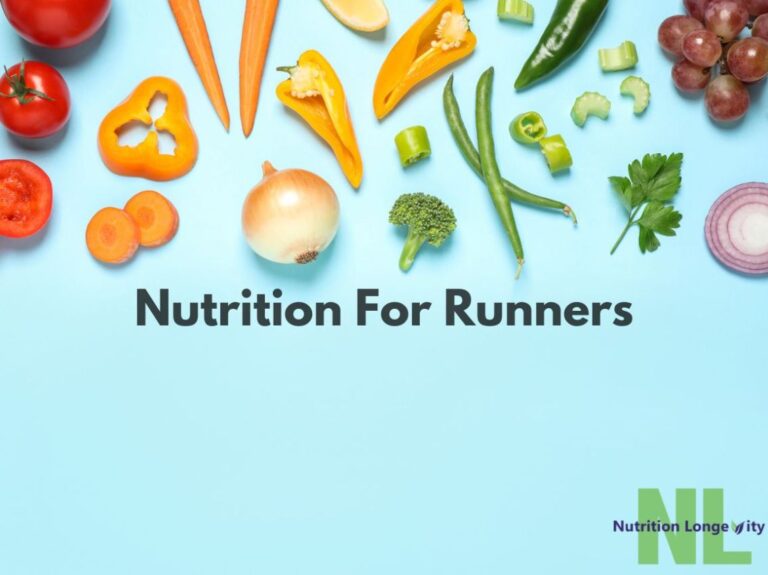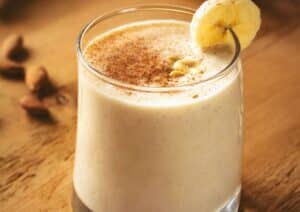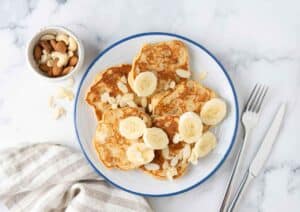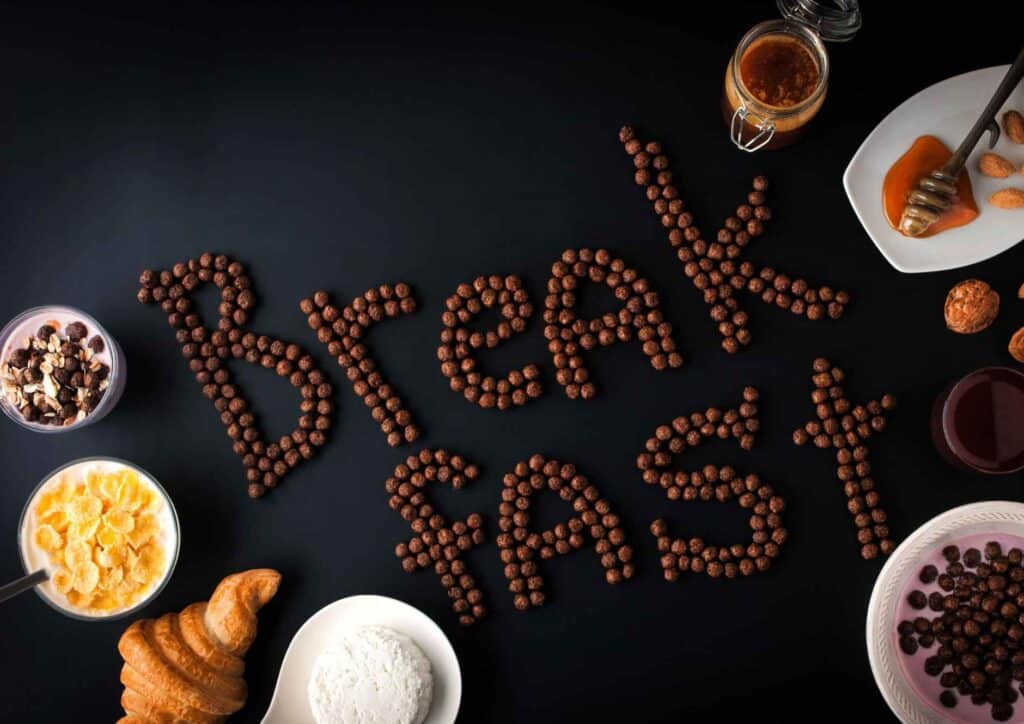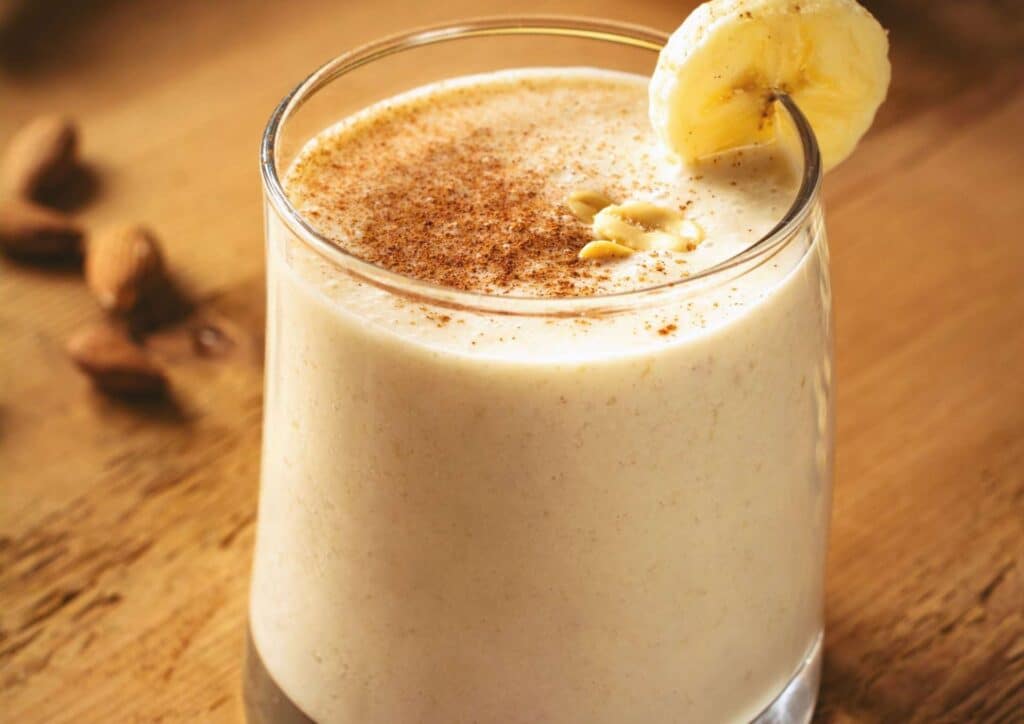Nutrition For Runners

Nutrition for Runners: Fuelling Performance and Recovery
Whether you’re a seasoned marathoner, training for your first race, or simply enjoy running as part of your fitness routine, proper nutrition plays a pivotal role in your performance and recovery. As a runner, your body requires specific fuel to sustain energy during runs, repair muscle tissue post-workout, and maintain overall health. Without the right balance of macronutrients and micronutrients, you may be compromising your endurance, speed, and recovery.
This is where professional guidance comes in. As a sports nutritionist, Jake Biggs works with runners of all levels to optimise their diets and support their running goals. In this article, Jake dives into the essentials of fuelling your body properly to maximise your performance, reduce injury risks, and speed up recovery times. From pre-run snacks to post-run recovery, this comprehensive guide provides you with everything you need to fine-tune your running nutrition strategy.
This article dives deep into how nutrition impacts runners, with a focus on both macronutrient balance and micronutrient intake. From pre-run snacks to long-term nutrition strategies, you’ll find the answers you need to maximise your running potential. Your nutrition for runners educational bible!
Your complete guide to optimal nutrition for runners! What you will learn:
- Why Nutrition is Essential for Runners
- Carbohydrates: The Primary Fuel Source for Runners
- Protein: The Key to Muscle Repair and Growth
- Dietary Fats: Supporting Endurance and Joint Health
- Vitamins and Minerals: Micronutrients That Enhance Performance
- Hydration: The Foundation of Fuelling
- Pre-Run Nutrition: Preparing for Peak Performance
- Post-Run Nutrition: Refuelling and Muscle Repair
- The Role of Gut Health in Running Performance
- Tailoring Nutrition to Your Running Goals of Sports Nutrition
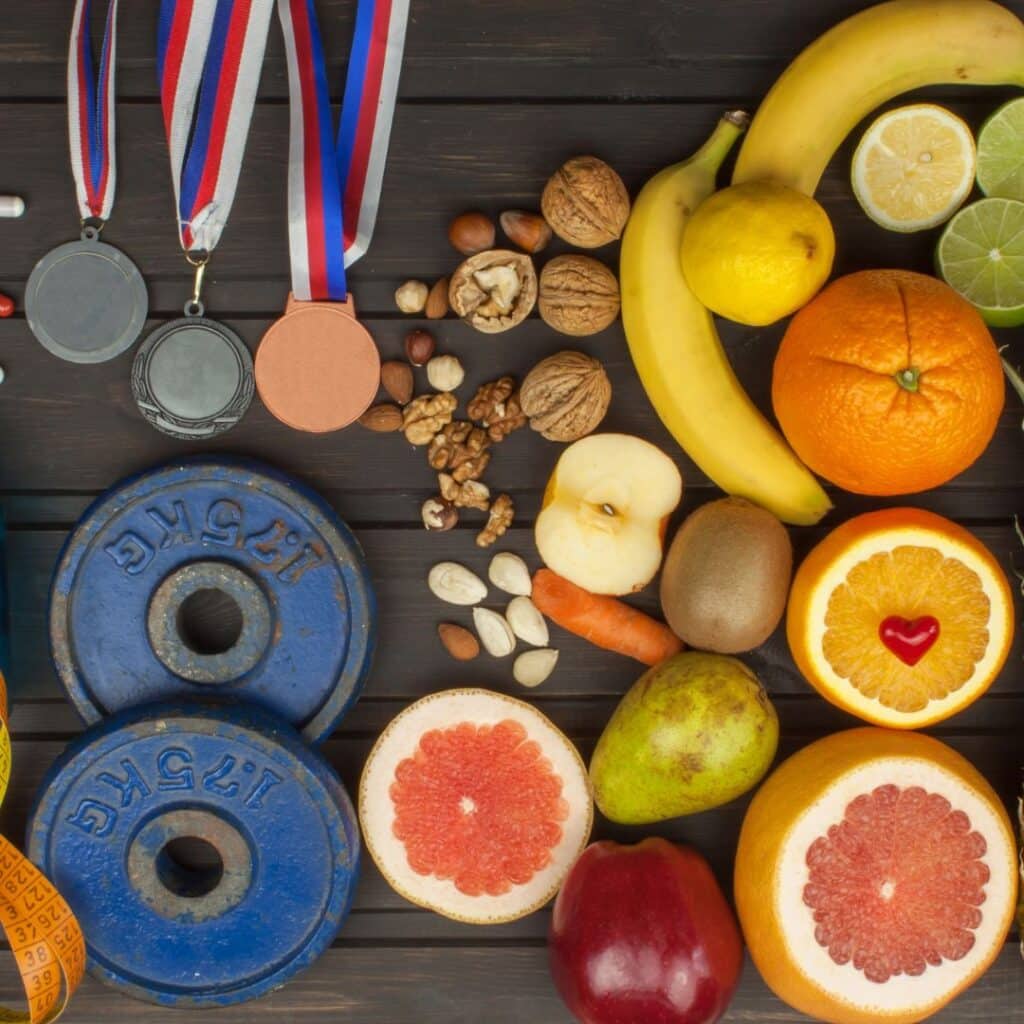
Why Nutrition is Essential for Runners
Nutrition for runners is essential because it provides the body with the necessary fuel to perform at its best. During a run, your muscles use stored carbohydrates (glycogen) and fats for energy, which means consuming an adequate amount of macronutrients is crucial. Carbohydrates, in particular, are the primary source of energy for endurance activities like running. Without sufficient carbs, your body will struggle to maintain stamina, leading to fatigue and potentially affecting your overall performance.
Protein also plays a vital role in muscle repair and recovery, helping to rebuild tissue that is broken down during a run. Healthy fats provide a steady source of long-term energy, especially for longer runs, and support other bodily functions such as hormone regulation and joint health.
When it comes to nutrition for runners, it’s not just about macronutrients—micronutrients like vitamins and minerals are equally important for maintaining optimal health and performance. Nutrients such as iron, calcium, magnesium, and vitamin D are essential for strong bones, injury prevention, and supporting the body’s energy production systems.
A lack of these micronutrients can result in deficiencies that lead to fatigue, muscle cramps, or even more serious issues like bone stress fractures. Prioritising nutrition for runners ensures that your body has all the essential elements it needs not only to fuel your runs but also to recover efficiently and stay injury-free. By fine-tuning your diet, you can unlock your full potential as a runner and achieve your fitness goals more effectively.

Carbohydrates: The Primary Fuel Source for Runners
Carbohydrates are the body’s preferred source of fuel during exercise, especially for runners. A key part of nutrition for runners, carbohydrates play a critical role in performance, endurance, and recovery. When you run, your body relies heavily on glycogen—a form of stored carbohydrate found in your muscles and liver—as a primary source of energy. The more glycogen your body can store, the longer and more intensely you can run.
Why Carbs Matter in Nutrition for Runners: Carbohydrates break down into glucose, which provides the quick energy needed for running. For shorter, faster runs, carbohydrates are used almost exclusively, while during longer runs, the body initially uses carbohydrates and then shifts to fats once glycogen stores begin to deplete.
Carbohydrates are generally broken down into two categories:
Simple carbohydrates (quick-digesting): Found in fruits, sports drinks, and gels, these provide a fast source of glucose for energy.
Complex carbohydrates (slow-digesting): Found in foods like oats, sweet potatoes, and whole grains, these offer a more sustained energy release, helping to maintain performance during longer runs.
As part of a well-structured nutrition plan for runners, Jake recommends consuming 5–7 grams of carbohydrates per kilogram of body weight per day, depending on the intensity of training. For instance, a 70 kg runner should aim for approximately 350–490 grams of carbohydrates daily.
Top Carbohydrate Sources for Runners:
Whole grains: Brown rice, quinoa, oats, and whole wheat pasta
Starchy vegetables: Sweet potatoes, squash, and corn
Fruits: Bananas, apples, berries, and oranges
Legumes: Lentils, chickpeas, and kidney beans
Carb Loading in Nutrition for Runners: For endurance athletes, “carb-loading” before long runs or races can significantly enhance glycogen stores. This involves increasing carbohydrate intake 1–3 days before an event to ensure muscles are fully stocked with glycogen, ultimately improving stamina and race-day performance.

Protein: The Key to Muscle Repair and Growth
While carbohydrates are your primary source of energy, protein is crucial for rebuilding and repairing muscle tissue—making it an essential part of nutrition for runners. Every run, especially those that are high in intensity or distance, causes microtears in your muscle fibres. Protein helps repair these tears, allowing your muscles to grow back stronger and more resilient.
Why Protein is Essential in Nutrition for Runners: Protein is made up of amino acids, the building blocks of muscle. Consuming protein after a run accelerates recovery by supporting muscle rebuilding and tissue repair. Without adequate protein as part of your nutrition for runners plan, recovery time can be delayed, and muscle breakdown may exceed repair, increasing the risk of injury.
Protein Requirements for Runners: Jake suggests that runners aim for 1.2 to 1.6 grams of protein per kilogram of body weight per day, depending on training intensity and frequency. For example, a 70 kg runner should consume between 84–112 grams of protein daily to meet their nutrition for runners needs.
Top Protein Sources for Runners:
Lean meats: Chicken, turkey, lean beef
Fish and seafood: Salmon, tuna, prawns
Plant-based protein: Tofu, tempeh, legumes, quinoa, and edamame
Dairy: Greek yoghurt, cottage cheese, and milk
Nuts and seeds: Almonds, chia seeds, and hemp seeds
Protein Timing in Nutrition for Runners:
Post-run: Aim for 20–25 grams of protein to initiate muscle repair. This could include a protein shake, chicken salad, or yoghurt-based snack.
Throughout the day: Spread protein intake evenly across meals to support ongoing muscle repair and growth, a key component of sustainable nutrition for runners.
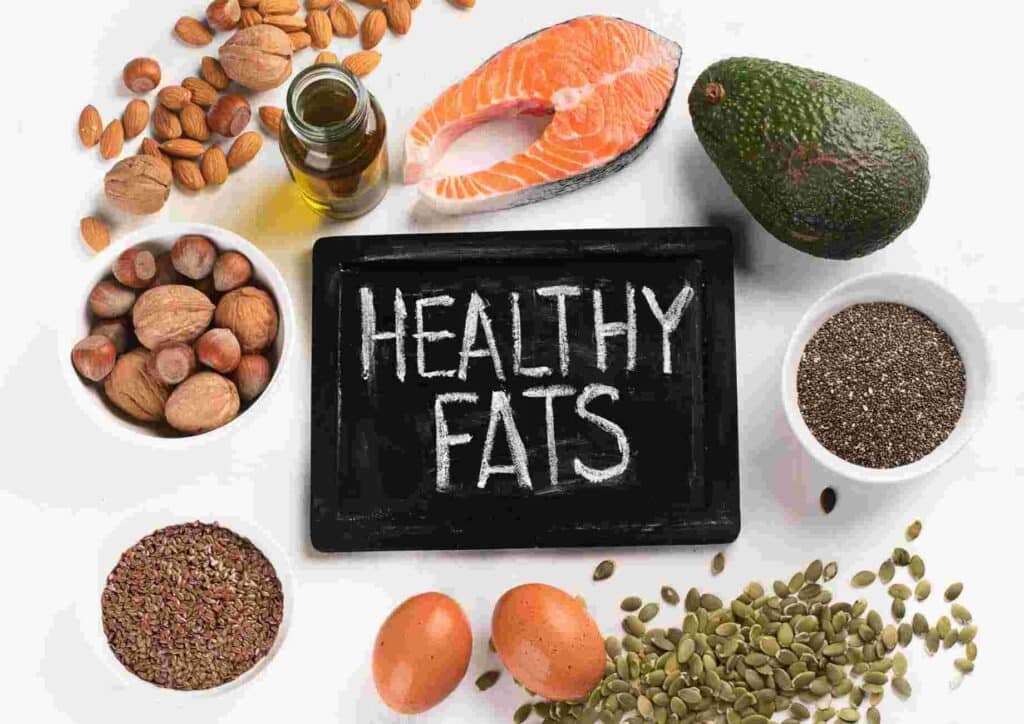
Dietary Fats: Supporting Endurance and Joint Health
Fats are often overlooked in nutrition for runners, but they play a vital role—especially for long-distance runners. While carbohydrates are the body’s primary fuel, fat becomes increasingly important during prolonged exercise when glycogen stores start to deplete. Fat also supports overall health, including brain function, hormone regulation, and reducing inflammation.
Why Fats Matter in Nutrition for Runners: Fats serve as a slower-burning fuel source that your body taps into during extended runs, particularly those lasting longer than 90 minutes. Incorporating healthy fats into your diet can help maintain steady energy levels and optimise endurance performance. Omega-3 fatty acids—found in foods like salmon and flaxseed—also reduce inflammation and support joint health, both of which are essential for recovery and injury prevention in runners.
Top Healthy Fat Sources for Runners:
Avocados: Rich in monounsaturated fats that benefit heart and joint health
Nuts and seeds: Walnuts, almonds, chia seeds, and flaxseeds
Fatty fish: Salmon, mackerel, sardines, and tuna
Olive oil: A heart-healthy fat perfect for cooking or dressing salads
Fat Intake Guidelines in Nutrition for Runners: Jake recommends that runners aim to get 20–35% of their daily calories from healthy fats. For example, a runner consuming 2,500 calories per day should include approximately 55–95 grams of fat to meet their needs and support long-term performance and recovery.
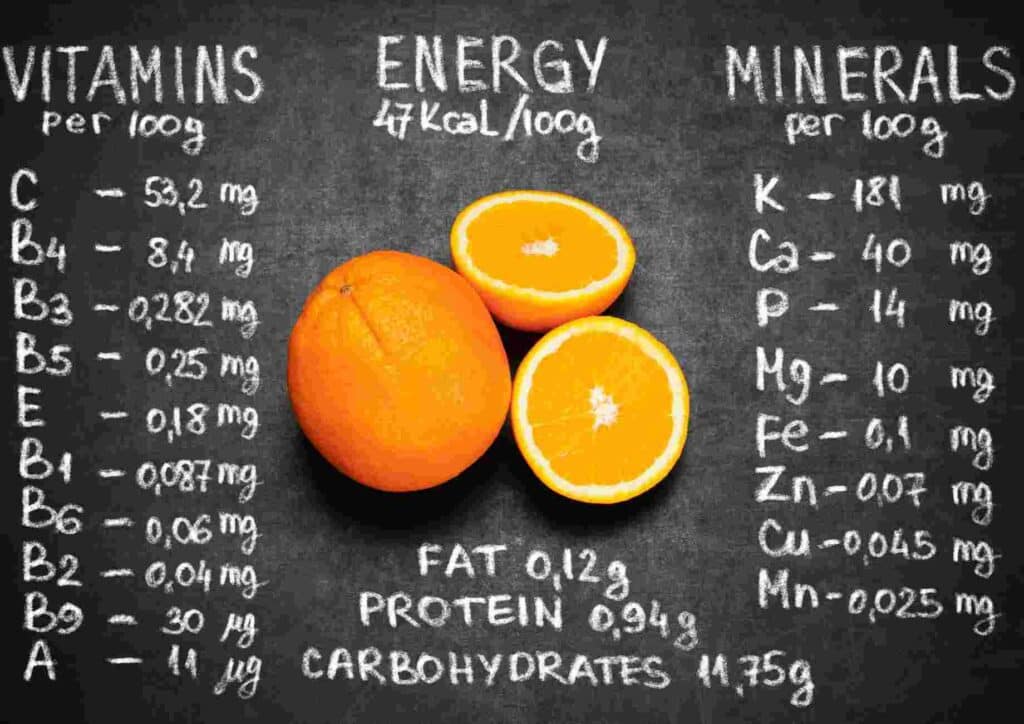
Vitamins and Minerals: Micronutrients That Enhance Performance
Micronutrients, though needed in smaller quantities than macronutrients, are a crucial part of nutrition for runners. They play key roles in energy production, immune support, and muscle function—all of which are essential for running performance and recovery.
Key Micronutrients in Nutrition for Runners:
Iron: Vital for transporting oxygen in the blood. Runners—especially females—are at higher risk of iron deficiency. Include sources like red meat, spinach, and iron-fortified cereals in your nutrition for runners plan.
Calcium: Essential for strong bones and injury prevention. Found in dairy products, fortified plant-based milks, and leafy greens.
Vitamin D: Supports calcium absorption and immune health. Get sunlight exposure and consider supplements if needed.
Magnesium: Aids in muscle function and helps reduce cramps. Sources include nuts, seeds, leafy greens, and whole grains.
Vitamin C: Helps combat oxidative stress and strengthens the immune system—especially important after long runs. Found in citrus fruits, strawberries, and capsicum.
B Vitamins: Key for converting food into usable energy. Present in whole grains, eggs, and leafy vegetables.
Micronutrient Deficiencies in Runners: Insufficient intake of these essential nutrients can negatively impact your energy levels, immunity, and overall performance. A balanced diet full of colourful vegetables, fruits, whole grains, and quality proteins is foundational for optimal nutrition for runners and helps prevent deficiencies that could hinder progress or lead to injury.

Hydration: The Foundation of Fuelling
Hydration is a fundamental part of nutrition for runners, directly impacting performance, endurance, and recovery. Dehydration can quickly lead to fatigue, reduced output, and increased risk of injury. Since water makes up around 60% of your body weight, it plays a vital role in nutrient transport, regulating body temperature, and removing waste products—making it an essential focus in any runner’s nutrition plan.
Hydration Guidelines in Nutrition for Runners:
Before running: Drink 500–700 mL of water about 2–3 hours before exercise to ensure you’re well-hydrated.
During running: For runs longer than 30 minutes, aim to consume 150–300 mL of water every 15–20 minutes to maintain fluid balance.
After running: Rehydrate by drinking 1.5 times the amount of fluid lost through sweat—water or a balanced sports drink can help restore hydration levels effectively.
Electrolytes such as sodium, potassium, magnesium, and calcium are equally important in nutrition for runners, especially during long-distance events or training in hot, humid conditions. Replacing these minerals helps prevent cramping and supports proper muscle function. Include options like sports drinks, coconut water, or electrolyte tablets to restore electrolyte balance and support optimal recovery.

Pre-Run Nutrition: Preparing for Peak Performance
What you eat before a run is crucial for performance. Fueling up the right way ensures that your body has the energy it needs for the workout ahead.
Pre-Run Meal (1-2 hours before):
- Carbs: Oats, a banana, or a smoothie
- Protein: A small amount of protein, such as Greek yoghurt or a scoop of protein powder
- Minimal fats: Keep fats low to avoid sluggish digestion
Pre-Run Snack (30 minutes before):
- A banana, apple, or a handful of dates

Post-Run Nutrition: Refuelling and Muscle Repair
Refuelling after a run is just as important as the run itself. Post-run nutrition helps replenish glycogen stores, repair muscle fibres, and reduce inflammation.
Key Post-Run Nutrition:
- Carbs: For glycogen replenishment (ideally 30-60 grams)
- Protein: To support muscle repair (around 20-25 grams)
- Hydration: To replace lost fluids

The Role of Gut Health in Running Performance
A healthy gut plays a critical role in nutrition for runners, directly influencing energy levels, recovery, and overall performance. When your digestive system is functioning well, your body is better able to absorb key nutrients like carbohydrates, proteins, vitamins, and minerals—fuel that’s essential for endurance and stamina. However, digestive issues such as bloating, gas, cramping, or irregular bowel movements can significantly disrupt your runs, especially during long-distance events or intense training.
One way to support gut health is by incorporating probiotics into your diet. Probiotics are beneficial bacteria that help maintain a balanced gut microbiome, which in turn supports digestion, immune function, and inflammation control. Natural sources of probiotics include fermented foods such as yoghurt with live cultures, kefir, kimchi, sauerkraut, miso, and kombucha.
Additionally, prebiotic fibres—found in foods like garlic, onions, bananas, oats, and asparagus—act as food for probiotics, helping them thrive in your digestive system. Together, prebiotics and probiotics enhance nutrient absorption, reduce gastrointestinal distress during exercise, and support a resilient immune system, which is especially important for runners pushing their physical limits.
For runners who experience gut discomfort, it’s also important to pay attention to timing and food choices around training. Eating too close to a run or consuming high-fat, high-fibre, or unfamiliar foods beforehand may trigger symptoms. Staying well-hydrated, eating slowly, and testing different meals during training (not on race day) can all contribute to better gut tolerance.
Prioritising gut health is a key element of nutrition for runners, helping to optimise digestion, reduce discomfort, and support consistent performance.

Tailoring Nutrition to Your Running Goals of Sports Nutrition
Whether you’re training for a marathon, improving speed, or simply running for fitness, nutrition plays a critical role in achieving your goals. Tailor your diet to your training load and race distance, ensuring that you prioritise carbs for long runs, protein for recovery, and healthy fats for endurance.
